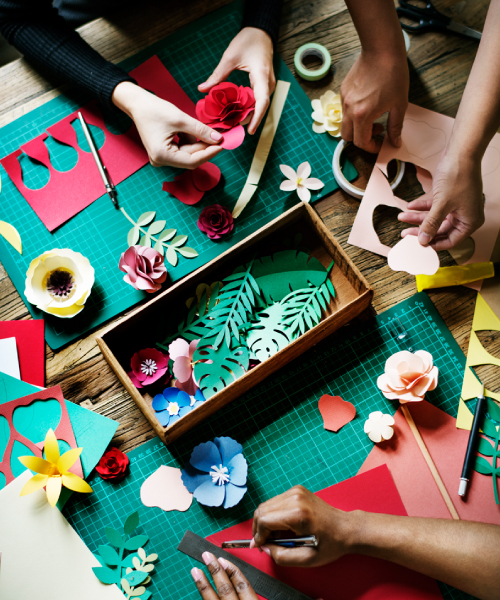PROJECTDESCRIPTION

GERMAN-TURKISH INITIATIVE for COLLABORATION on REFUGEE RELIEF
What is the objective?
This initiative is based on the conviction that exchange and close cooperation between Germany and Turkey enable both sides to identify and implement better solutions to the shared challenge of being inclusive in all senses in our societies and schools where there is an increasing diversity of children with and without refugee background. By bringing together a network of educators and other relevant actors who work with refugee children, the initiative allows project participants to present best practices, learn from each other, and jointly develop new methods of cultural education, which aim to:
- strengthen the self-confidence of refugee children and support them overcome traumatic experiences by enabling them to draw on their cultural heritage as they adapt to their new environment,
- support heritage language as well as acquisition of new languages more efficiently by employing unconventional methods, particularly those of cultural education.
Therefore, innovative methods and content developed throughout the project are going to be used with and by all children, while each output will also aim to strengthen communication and language skills of children with refugee background.
Project concentrates on two main questions:
"How can we develop a field-based support for better inclusion of children with a refugee background into social and school life?
And how do we collaboratively craft a creative content to reach out to all children (with and without refugee background) in order to contribute to a mutual and shared process of social cohesion through arts and culture?"
How does it work?
The network unites different professions and decision makers on a national and international level from four different regions: the Ruhr Region, Berlin, Istanbul, and Gaziantep. Participants learn about innovative and unconventional approaches during workshops, working groups, site visits, and through job shadowing. They are able to exchange experiences and ideas, and jointly develop new educational methods. Based on collaborative work, participants initiate small German-Turkish projects and continually improve these methods while working with refugee children. Following a piloting period, all outputs will be revised and finalized at the end of the project to be shared will all relevant actors in the field.
Beyond the network, the initiative also aims to raise awareness of its objectives among stakeholders and the broader public. The educational methods and experiences from these projects are shared with educators and other important stakeholders in the form of teaching manuals, publications, applications, videos, etc. The project’s main output, therefore, is a toolbox that comprises cutting-edge educational methods, which aim to improve the non-formal educational work with children with/without refugee background in Germany, Turkey, and beyond. Hands-on recommendations for implementing these methods will also be provided.
Who are the participants?
The project aims to form a core group of participants composed of educators and civil society actors from Germany and Turkey. Participants, among whom are also professionals with refugee background, come from very divers fields: Educators, social workers, teachers, scientists from universities, non-formal education coordinators, psychologists, drama teachers, museum pedagogues, musicians, reseachers, art therapists etc.
What are the working groups?
In the Kick Off Workshop in Essen in July 2017, five different working groups were developed. Each group focuses a different tool or a different perspective to support the inclusion of children with a refugee background into hosting societies.
- MeloBe
- Space for Inclusion
- ArTogether
- Dancing Matters
- Learning Multilingualism (Maxi Game and Memo Game)
Who are the organizers?
The two-year project is being organized and implemented by Anadolu Kültür and Kommunale Integrationszentren Landeskoordinierungsstelle, and is supported by Stiftung Mercator.